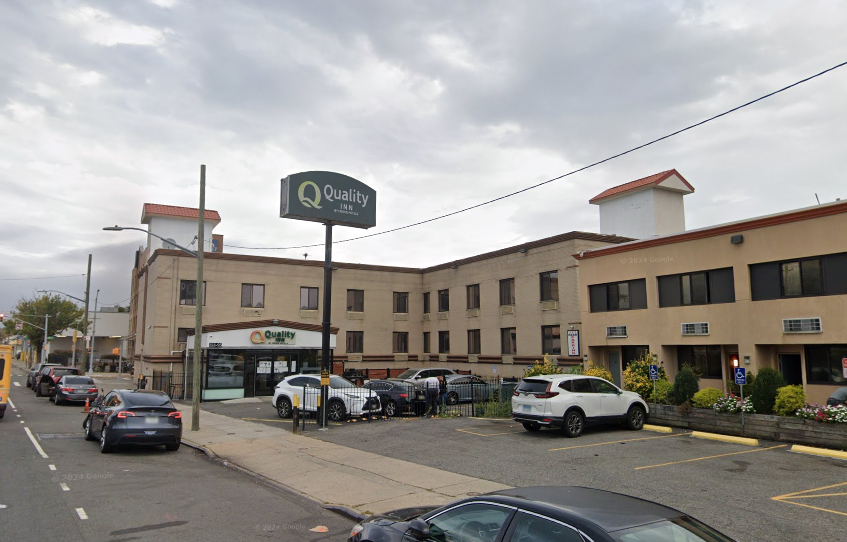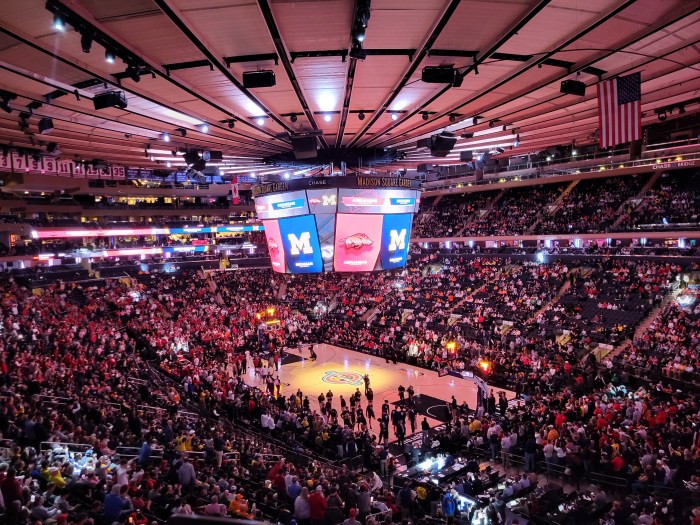By Jefferson Siegel
Landlords filing suit against a new tenant anti-harassment law were lambasted at a rally on the steps of City Hall last week.
On Mon., Aug. 18, the city received notice that a lawsuit against Local Law 7, the Tenant Protection Act, had been filed by the city’s leading landlord group, the ironically named Rent Stabilization Association.
The lawsuit argues that a law enacted by the City Council cannot supersede housing codes, and it also claims that the Tenant Protection Act violates a landlord’s 14th Amendment right to due process.
The new law was intended to penalize landlords for a variety of actions deemed to be harassment. These actions include using force or making threats against a tenant, interrupting utility services, commencing baseless litigation and removing possessions or changing door locks.
Drafted by City Council Speaker Christine Quinn and several councilmembers, and signed into law by Mayor Mike Bloomberg this March, the law empowers tenants to sue their landlords for failure to provide essential services and other actions on a cumulative that qualify as harassment. Previously, when services were withheld, tenants could only bring suit on a case-by-case basis, an often lengthy and cumbersome process.
A day after the city received the landlords’ lawsuit, tenant organizers gathered at City Hall on Tues., Aug. 19, to join councilmembers in denouncing the suit.
“I think they’re desperate,” said Roberta Fink, a resident of Chelsea’s Penn South co-op complex for 18 years. “It’s a Hail Mary pass.”
“Anything they don’t like, they find a way to legally oppose,” said Vivian Riffelmacher, of the West Side Neighborhood Alliance.
Quinn pledged to keep the Tenant Protection Act in force.
“The filing of this lawsuit speaks volumes about the fact that this harassment is a reality,” Quinn said, as more than 100 tenants and tenant advocates cheered her on. “We will win this lawsuit.”
“This is just, plain and simple, a disgrace,” said Councilmember Melissa Mark-Viverito, who represents Upper Manhattan and part of the Bronx. The law’s intention, Mark-Viverito said, was “to protect the most vulnerable.”
As the proposed law made its way through drafts and committee hearings, it was opposed at every turn “by the most powerful special-interest group in the city,” the real-estate lobby, said Irene Baldwin, executive director of the Association for Neighborhood and Housing Development. At last week’s rally, Baldwin took a conciliatory tone, inviting the landlord lobby to “come back and join the rest of the world in fighting the harassers.”
Under the law, evidence of harassment could make a landlord liable for penalties of from $1,000 to $5,000.
A lawyer for the R.S.A., Mitchell Posilkin, was quoted in The New York Sun on Aug. 19 saying the lawsuit is necessary because city inspectors have no means to “objectively evaluate whether ‘harassment’ has taken place.”
But Quinn stated, “We actually got input from the R.S.A. on this law.”
In fact, if a landlord has had three allegations of harassment dismissed in court over a period of 10 years, a tenant seeking to sue again would first need a judge’s consent to file another claim.
As word of the lawsuit spread, tenants’ resolve to fight it stiffened.
“It’s absolutely egregious,” said Anita Black, a Chelsea resident and W.S.N.A. member. “It’s wrong. We have to say no.”
Hell’s Kitchen resident Maureen Burns was taken aback by the legal end run.
“I didn’t think people could be so shameful,” she said. “As a group, you think they’d have more integrity.”
John Raskin, organizing director of Housing Conservation Coordinators, put it more bluntly.
“The R.S.A. is saying that they’re in favor of tenant harassment,” Raskin said.
Quinn said the landlords’ lawsuit was under review by the city’s Law Department. The week before, tenants had also rallied at City Hall before testifying at a state hearing on a hotly contested type of demolition eviction. In what are known as “phony demolitions,” landlords are allowed to evict tenants — even if they don’t plan to raze the building — if they do gut interior renovations.



































